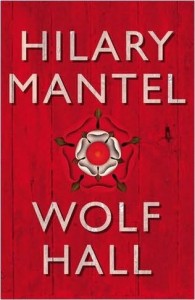 The scope and breadth of this novel is immense. Hilary Mantel sets out to describe a tumultuous period in English history, not by focusing on viagra usa the main event- Henry and Anne- but by showing the struggle faced by those more behind the scenes. Thomas Cromwell says, late in the book, that worlds are not changed by kings and popes, but by two men sitting at a table, coming to an agreement, or by the exchange of thoughts and ideas across countries. And that is what Mantel seems to believe, too; thus, she does not focus her story on the huge proclamations or big meetings.
The scope and breadth of this novel is immense. Hilary Mantel sets out to describe a tumultuous period in English history, not by focusing on viagra usa the main event- Henry and Anne- but by showing the struggle faced by those more behind the scenes. Thomas Cromwell says, late in the book, that worlds are not changed by kings and popes, but by two men sitting at a table, coming to an agreement, or by the exchange of thoughts and ideas across countries. And that is what Mantel seems to believe, too; thus, she does not focus her story on the huge proclamations or big meetings.
She shows us Cromwell, alone at his desk, thinking and reminiscing. She details short, almost off-hand conversations between Cromwell and his wonderful family. And then, sometimes, she will give us fascinating debates between Cromwell and Sir Thomas More, the “man for all seasons” who was ruthless in his practices to rid England of heretics.
Even the title of the book is more suggestive than straight-forward. Wolf Hall is the seat of the Seymour clan, but no scene in the book takes place there. The Seymours make cameos, and Cromwell takes note of them, but Wolf Hall is a distant building for most of the book. Instead, it represents Cromwell’s forward thinking. He is grateful to the Boleyns for his rise in court and favor, but he does not allow himself to depend on them. He tells his son, “…it’s all very well planning what you will do in six months, what you will do in a year, but it’s no good at all if you don’t have a plan for tomorrow.” And Cromwell always, always has a plan for tomorrow.
I am not sure if I fully believe in Mantel’s reconstruction of Cromwell as a man who wanted only to reform England, and was so forward-thinking in his ideals. However, it’s understandable; Cromwell was a blacksmith’s son who rose to prominence at a time when everyone important was noble or royal. Of course he would want the same opportunities for his family and friends. Perhaps in the promised sequel, we’ll get the hardened and more ruthless Cromwell that people remember.
Mantel’s writing style drew me in completely. This book reminded me a great deal of A Place of Greater Safety, in terms of writing style. I don’t think I enjoyed it as much as that book, but that’s probably because the French Revolution
absorbs me far more than Tudor England does. Mantel writes so lyrically, so adeptly. She immerses herself in the period- the food, the clothes, the heat, the stench. She researched this book for years, and it’s obvious in the product. But she does not get bogged down by her facts, or by history. Her flair for witty conversation brings
her characters to life, giving them flesh and blood where history only gives them stark facts and wooden portraits. Yes, Cardinal Wolsey was able to tell a joke. Yes, Cromwell loved his wife. We don’t see those things, 500 years later.
The only parts of the writing that annoyed me, stylistically, were as follows: first, Mantel usually uses quotation marks to denote conversation, but sometimes she does not; second, Mantel uses the pronoun “he” too much. The first is just frustrating in reading such a thick novel because it can interrupt a rhythm. The second is confusing because there are often multiple “he” in conversation, and you can’t be sure who she is referring to, all the time.
Other than that, though- this book is great! Very worthy of the Booker Prize, in my view, and I look forward to the sequel. Lovers of epic, varied novels will be thrilled. Not only are extensive family trees provided, but there is also a five-page long list of characters. This isn’t the sort of book you read for ten minutes on the morning commute. It’s one to savor with a glass of wine.